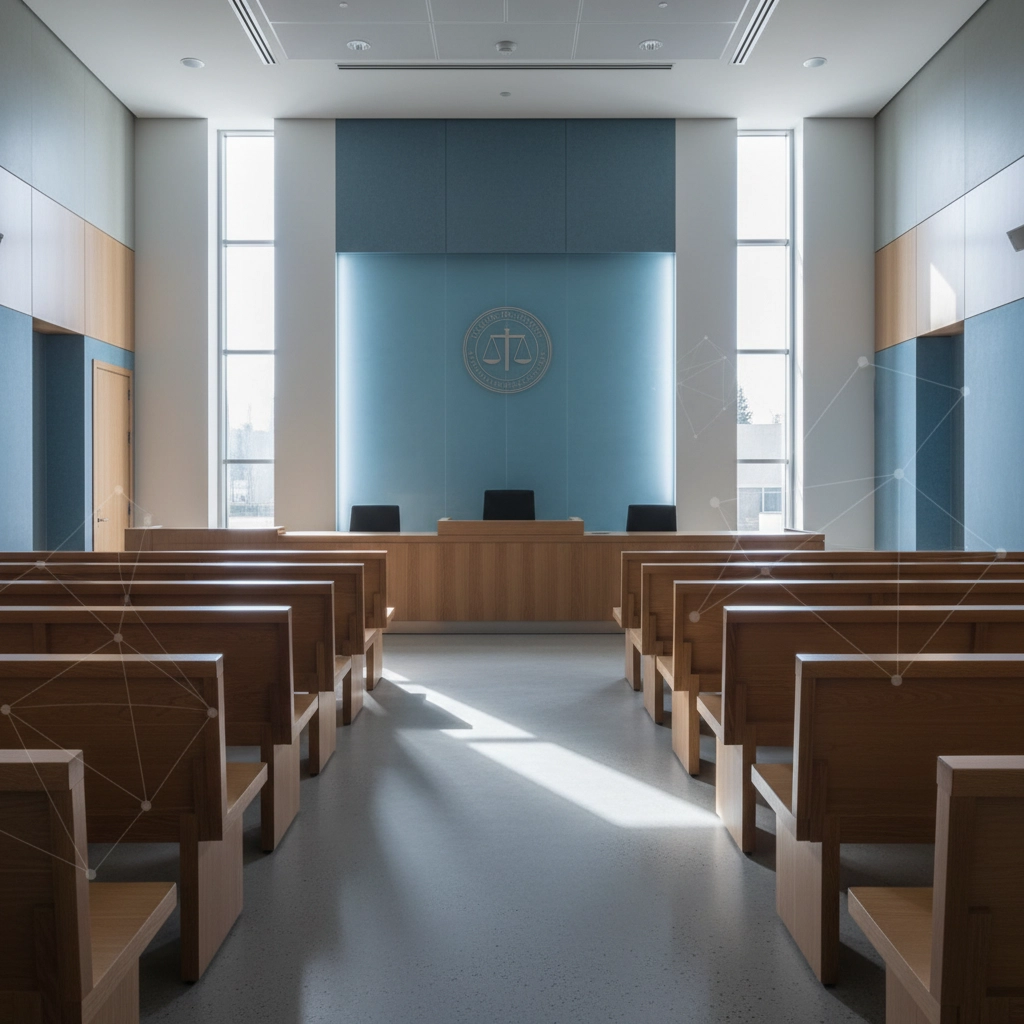Virginia Beach Juvenile Court Changes: 5 Things Parents Must Know About New Privacy Rules
- brookthibault
- Nov 4, 2025
- 5 min read
If you're a parent navigating Virginia's juvenile court system, recent changes have significantly altered how privacy rules work: and you need to understand these shifts to protect your family's interests effectively. These aren't minor adjustments; they're substantial policy changes that directly impact how you'll access information, protect your child's data, and manage their digital presence.
Let's break down the five most critical privacy rule changes that every Virginia parent should understand, especially if you're dealing with custody matters, juvenile proceedings, or simply want to stay ahead of new child protection laws.
1. Guardian ad Litem Reports Are Now Restricted from Home Access
What Changed: Since July 2024, Virginia Beach Juvenile and Domestic Relations District Court implemented a game-changing restriction on Guardian ad Litem (GAL) reports. Previously, you could take these crucial documents home to review with your family or discuss with trusted advisors. Now, you can only review GAL reports in court or at your attorney's office: no copies, screenshots, or photos allowed.
Why This Matters: GAL reports are incredibly detailed documents that include the guardian's investigation findings, custody recommendations, and often sensitive observations about your family dynamics. These reports frequently influence judges' final decisions in custody and visitation cases, making them some of the most important documents in your case.
The court made this change specifically because parents were sharing GAL reports on social media and with third parties, potentially compromising children's privacy and creating additional conflict between parents.

Practical Tips for Parents:
Schedule dedicated time with your attorney to thoroughly review GAL reports together
Take detailed notes during your review sessions (you can keep your own notes)
Prepare specific questions in advance to maximize your review time
Consider bringing a trusted family member who can attend the review session with you and your attorney
Understand that this restriction applies equally to both parents: neither side has an advantage
The Bottom Line: While this change may feel restrictive, it's designed to protect your child's privacy and prevent GAL reports from becoming tools for public conflict. Plan accordingly by building strong communication with your attorney and budgeting extra time for document review sessions.
2. Enhanced Data Protection for Children Under 13
What's New: Virginia's amended Consumer Data Protection Act, which took effect January 1, 2025, now requires companies to obtain your explicit consent before processing your child's personal data for targeted advertising, selling personal information, or creating profiles that could have legal consequences.
Real-World Impact: This means apps, websites, and online services your young child uses must now ask for your permission before:
Showing targeted advertisements based on your child's browsing history
Selling your child's personal information to third parties
Creating detailed profiles for marketing or other commercial purposes
Using your child's data for purposes not clearly disclosed upfront
Companies also must delete your child's data when it's no longer necessary for the stated purpose, and they cannot collect more information than reasonably needed to provide their service.
What You Should Do:
Review the privacy settings on all apps and websites your child uses
Pay close attention to consent requests: don't automatically click "agree"
Regularly audit what companies have permission to use your child's data
Understand that you have the right to revoke consent at any time
Consider using child-focused browsers and search engines that prioritize privacy
3. Social Media Time Limits Are Now Legally Mandated
The New Law: Virginia Governor Glenn Youngkin signed legislation in May 2025 that will limit minors under 16 to just one hour per day on social media platforms, effective January 1, 2026. This isn't a suggestion: it's a legal requirement that social media companies must enforce.
How It Works: Social media platforms must use "commercially reasonable" age verification methods to identify minor users. This might include neutral age verification screens, browser settings that indicate minor status, or plug-ins that signal age information.
Your Parental Rights: You maintain control as a parent. You can consent to allow your child more than one hour of daily social media use. Importantly, social media companies cannot degrade service quality or increase prices because of these time restrictions.
Preparing for the Change:
Have conversations with your teenagers about healthy social media use now
Consider what one hour of social media time means for your family's routine
Explore alternative activities your teens can engage in during reduced screen time
Understand that you'll need to actively manage consent settings starting January 1, 2026
Remember that this law is designed to support your family's wellbeing, not restrict your parenting choices

4. Juvenile Court Records Remain Confidential but Face Automatic Destruction
Understanding the System: Virginia maintains strict confidentiality for juvenile court records, keeping them completely separate from adult court files. Access is limited to specific parties directly involved in the case and their attorneys.
The Destruction Timeline: Here's what many parents don't realize: in most cases, these confidential juvenile records are automatically destroyed once your child turns 19 and at least five years have passed since the final hearing. This timeline serves to protect your child's future opportunities by ensuring juvenile mistakes don't follow them into adulthood.
Strategic Considerations:
If you need records for future proceedings, obtain certified copies before the destruction timeline
Understand that record destruction is generally beneficial for your child's future
Some serious offenses may have different retention rules: consult with your attorney about specific circumstances
Keep your own records and documentation separate from official court files
Privacy Protection Benefits: This confidentiality system means that potential employers, colleges, or other institutions typically cannot access your child's juvenile court records, protecting their future opportunities and privacy.
5. Age Verification Becomes Privacy Protection, Not Data Collection
The New Approach: Under the upcoming social media law, platforms must treat users as minors if their devices signal minor status through browser settings, plug-ins, or other mechanisms. Most importantly, age verification information can only be used to determine age and provide age-appropriate experiences: companies are prohibited from using this information for any other purpose.
Why This Matters: Previously, age verification often became another way for companies to collect personal information for marketing purposes. The new rules flip this approach, making age verification a privacy protection tool rather than a data collection opportunity.
Practical Benefits for Your Family:
Age verification information cannot be used for targeted marketing
Companies cannot build profiles based on age verification data
Your child's age information stays private and purpose-limited
You have more control over how age-related data is collected and used

Navigating These Changes Successfully
These privacy rule changes represent a significant shift toward protecting children's interests in Virginia's legal and digital landscape. While some changes may feel restrictive initially, they're designed to empower you as a parent while safeguarding your child's privacy and future opportunities.
Key Takeaways for Parents:
Plan ahead for restricted access to certain court documents by strengthening your relationship with legal counsel
Take advantage of enhanced data protection laws by actively managing your child's digital privacy
Prepare for social media time limits by establishing healthy screen time habits now
Understand that juvenile record confidentiality and destruction ultimately benefit your child
Use new age verification protections as tools to maintain your child's privacy online
Getting Professional Support
Navigating these new privacy rules can feel overwhelming, especially when you're already managing the stress of juvenile court proceedings or custody matters. You don't have to figure this out alone.
At Coastal Virginia Law, we understand how these privacy rule changes affect real families dealing with real challenges. Our team stays current on all developments in Virginia juvenile and family law, and we're here to help you understand how these changes impact your specific situation.
Whether you need guidance on accessing GAL reports effectively, understanding your rights under new data protection laws, or preparing for upcoming social media regulations, we can provide the personalized legal support your family deserves.
Ready to protect your family's interests under Virginia's new privacy rules?Contact Coastal Virginia Law today for a consultation. We'll help you understand exactly how these changes affect your case and develop a strategy that puts your child's best interests first while protecting your parental rights.
Your child's privacy and future matter: and with the right legal guidance, you can navigate these new rules confidently and successfully.


Comments